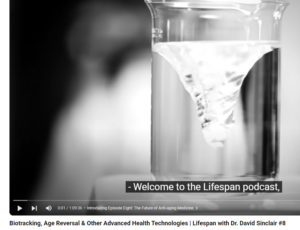
Dr. David Yeager: How to Master Growth Mindset to Improve Performance
In a compelling episode of the Huberman Lab podcast, Dr. Andrew Huberman, a Stanford professor of neurobiology and ophthalmology, sits down with Dr. David Yeager, a leading researcher in psychology at the University of Texas at Austin. They discuss the potent concept of growth mindset, a theory originally developed by Carol Dweck, which suggests that our abilities and intelligence can develop with effort and the right strategies.
Understanding Growth Mindset
Dr. Yeager elaborates on the true essence of growth mindset, which is often misconstrued. He states:
“It’s simply the belief that your abilities or your potential in some domain can change… under the right conditions, with the right support, change is possible”.
This clarification is crucial. Growth mindset isn’t about the ability to achieve anything merely through effort, but rather the potential for significant improvement under conducive conditions. It’s about recognizing that our intellectual and personal capabilities are not fixed but are capable of growth and enhancement.
Reframing Challenges and Failures
Dr. Yeager discusses the psychological shift that growth mindset can bring about in facing challenges and failures. He points to how a fixed mindset, the belief that our capabilities are static, can lead to stress and defensiveness. In contrast, a growth mindset transforms challenges into opportunities for learning and growth. This shift is pivotal for both academic and personal development, fostering resilience against setbacks.
Real-world Implications of Growth Mindset
In one of his research studies, Dr. Yeager found that even brief interventions teaching students about the malleability of their brain’s capabilities could have long-lasting positive effects on their academic performance:
“Our 2019 paper in Nature…took a very short growth mindset intervention… and we found kids were, eight-nine months later, more likely to get good grades”.
These findings underscore the potential of growth mindset interventions in educational settings, suggesting that even minimal but well-structured exposure to these concepts can lead to improved educational outcomes.
The Science Behind Growth Mindset
Diving deeper, Dr. Yeager explains how growth mindset interventions work. They often involve teaching about the brain’s plasticity—the ability of the brain to change and adapt—which can be an empowering realization for learners:
“The brain is like a muscle… just like muscles get stronger when they’re challenged… so too does the brain get smarter when it’s pushed and challenged in a certain way”.
This analogy not only simplifies the concept but also connects it to a physical experience most people can relate to, making the abstract idea of brain development more tangible.
Conclusion
The discussion between Dr. Huberman and Dr. Yeager offers profound insights into the transformative power of growth mindset. By reframing how we perceive our abilities and the challenges we face, we can unlock a greater potential for learning and personal growth. This mindset not only enhances academic performance but also prepares individuals for various life challenges, making it a valuable life skill.





